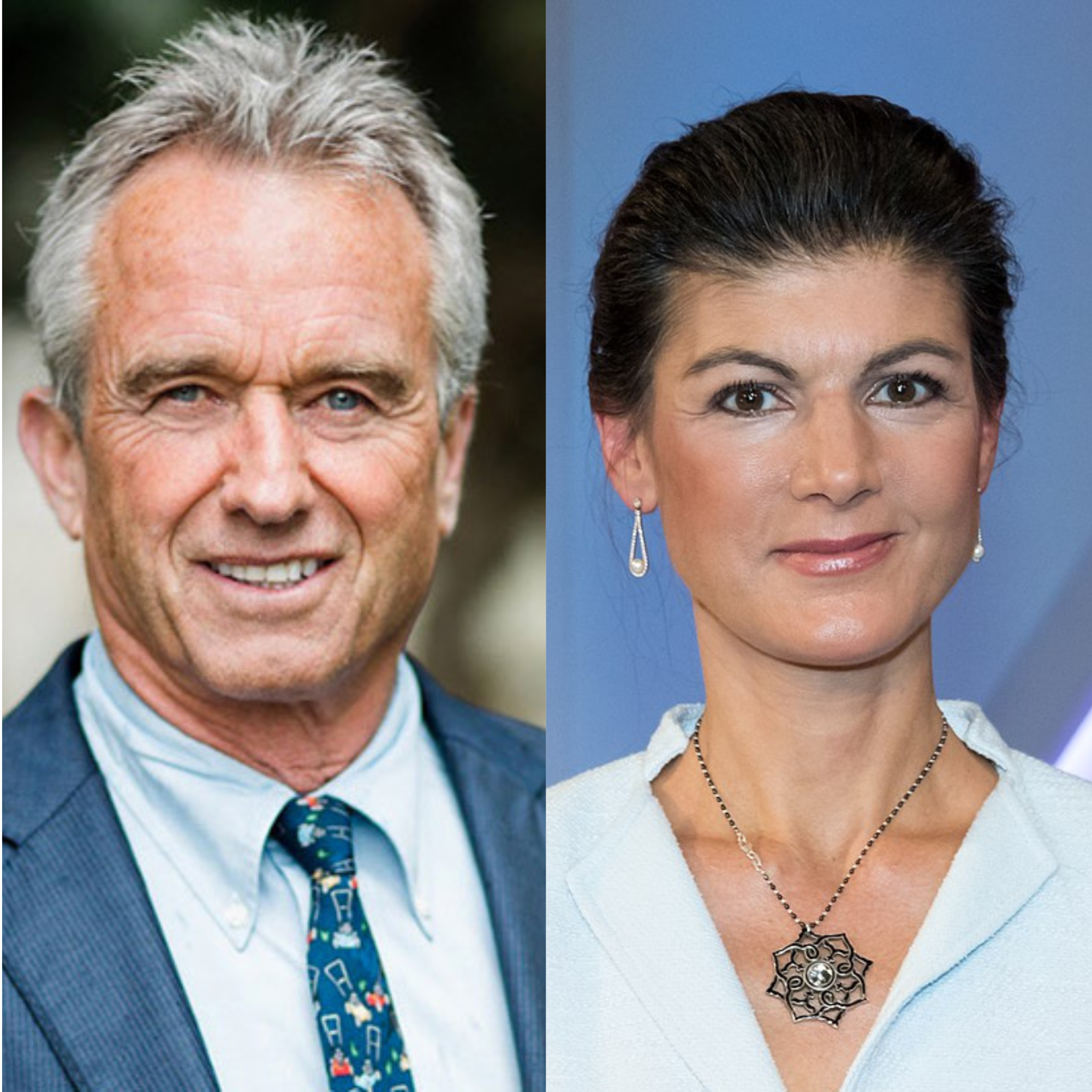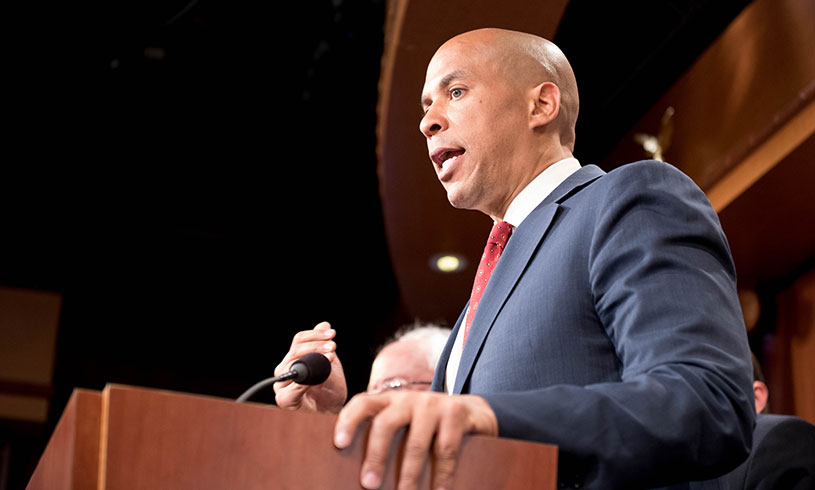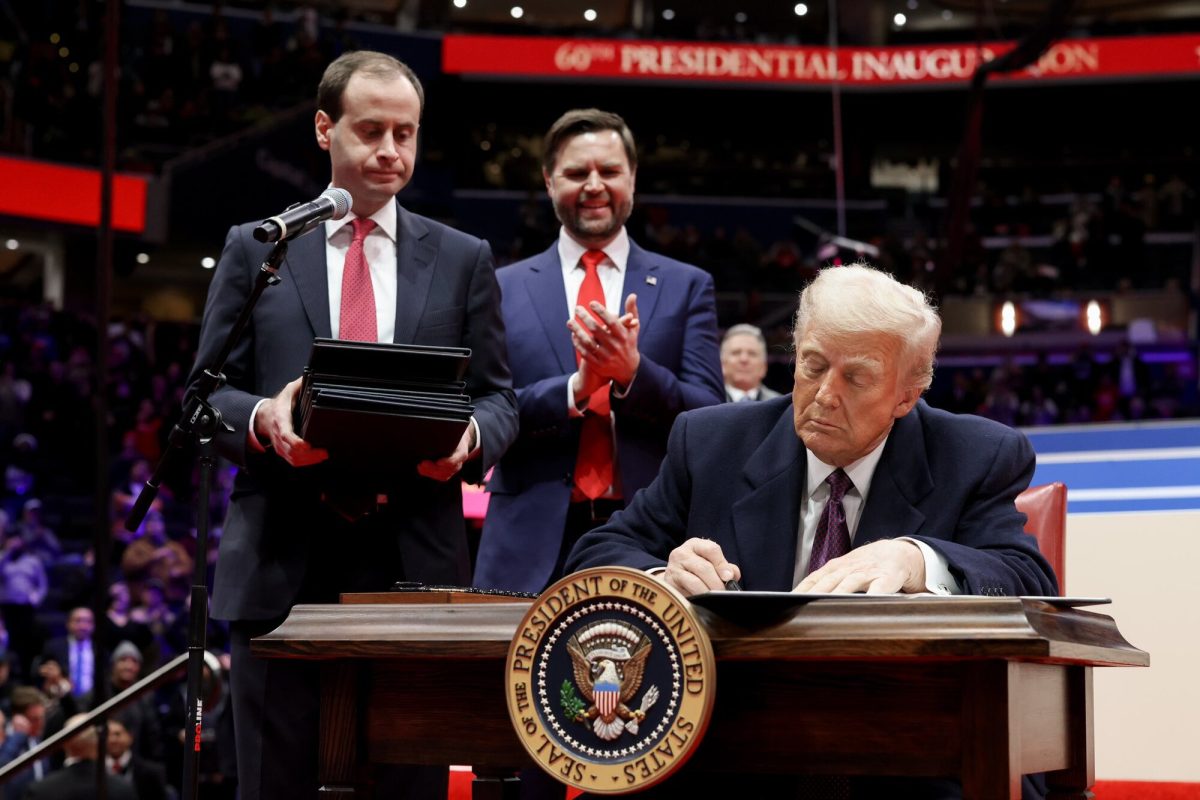On Feb. 19, 2023, Robert F. Kennedy Jr. announced his intention to run for President of the United States in the 2024 Presidential Election. Kennedy’s divisiveness comes from his anti-government rhetoric and unorthodox positions, which mix right-wing and left-wing populism. On Sept.26, 2023, Sahra Wagenknecht of Germany split from the German Left Party to found a new party called “Justice and Reason”. Wagenknecht has ridden a similar wave to RFK Jr, criticizing the government for what she sees as overly liberal immigration policy while calling for a stronger welfare state and more regulation of markets. Although their individual policies aren’t identical, the principle underlying their rise to prominence is similar. But their chances of genuine success isn’t as high as they’d like you to believe.
Populism is generally defined as the separation between the corrupt elite and the people, often portrayed as a battle between the two.
RFK Jr. is an environmentalist and anti-Ukraine vaccine skeptic running as a third-party candidate in a two-party system. Wagenknecht is a conservative leftist in an environment where the far-right Alternative for Germany is thriving as the government fails to handle competing crises.
State High Comparative Government teacher Andrew Merrit cited a “combination of factors” that play into these candidates gaining traction–from “a disillusioned populus” to channeling anger over Covid restrictions and economic woes.The problem however, is that they appeal to short-term grievances rather than offer a concrete ideology, limiting their long-term potential.
Senior Prithvi Narayanan is the President of student government. He stated, “She’s trying to eat into the major support for the AFD, and because she’s doing that, I think she’s selling her soul to entice the Far-Right. But I think she and RFK are pandering or altering their policies to expand their support. And you see that with the very leftist ideology. You have RFK Jr. here, who is very progressive on environmental issues and the economy but very anti-vaccine. Meanwhile, you have Wagenknecht, who’s very anti-immigration but very progressive on the welfare state.”
Senior Asher Collens sees RFK Jr. and Sarah Wagenknecht as “appealing to the more left side of populism, which is really appealing to a side of people that feel politically homeless.”
It’s easy for politicians to forget that not all voters fall neatly into the typical left-right spectrum. Moreover, candidates like these can play into those groups, giving them an advantage against more orthodox candidates who don’t even bother trying.
Collens mentioned the digital age as a factor for the candidates rise to power, “One thing I think would be very useful is the rise of social media to coalesce where usually they wouldn’t be heard.”
When analyzing politics in the 21st century, you’d likely end up circling back to social media frequently. It played a significant role in the creation of other populist movements like the Tea Party, Qanon, and the right-wing populism of Donald Trump. And it shows no sign of slowing down anytime soon in its influence. These movements, however, don’t typically have staying power.
Merritt also mentions that these types of candidates use their broad anti-establishment rhetoric in order to appeal to diverse groups. For example, Wagenknecht, “may pull 6% from there and 8% from there, and 3% from there, and all of a sudden she’s at 20%,” Merritt stated.
Narayanan remains skeptical on how RFK Jr. will impact the existing political spectrum in the US.
“In the end, I don’t think he’ll play a major role in the 2024 election. There’s a history of third-party candidates performing poorly. The last real challenge was Ross Perot,” Narayanan said. “While he swung the elections back in the 90s, he didn’t win any states. The only thing that he could do is shake up swing states where the lead is extremely thin.”
Meanwhile, Collens argued, “I don’t think he does. We’ve had other very populist candidates. And he just happens to be left-leaning.”
Merritt agrees with these assessments while also mentioning his broad base of appeal.
“He draws support away from both Trump and Biden,” Merritt said. “I don’t think he’ll win a state, but he could harm one of them enough to stop them from getting the necessary votes for the Electoral College.”
The historical record strengthens these claims — no third party candidate has won a single state since 1968. RFK Jr. could play a kingmaker role, but even that’s up for debate, as the people who say they’ll vote for him now may not do so.
To stave off the threat she may bring, the AFD has invited Wagenknecht to join them.
According to Narayanan, “the AFD’s invitation indicates that she won’t change the political landscape in Germany. She’s going to bite into AFD, she’s going to suck out voters from the AFD, but she’s not changing the fact that Germany is moving rightward.”
“She’s appealing to populism and many AFD voters might not agree with some of the more far right things it has to offer,” Collen agreed. “Or they might be aware of the history of the far right in Germany and want something else where they can still have those populist views without the baggage that comes with the AFD.”
Merritt views this as a way for the AFD to fit itself more into the mainstream. “She’s a known quantity. If they bring her in, she threatens them less. So it may be in their interest to draw her into their party because then they have her, there’s another saying that goes, ‘Hold your friends close, your enemies closer.’ So if she’s there, she’s part of them, and then she becomes less threatening to them. But what I’ve read about her, she’s a wild card. I’d be surprised if she joined them.”
This decision is significant because of how it represents the AFD’s status in German politics. The decision shows that AFD is ideologically thin, but the ideas they present with the most energy have gone into the mainstream. However, it’s also important to note that the AFD seems to only ever do well when the establishment is unpopular, further cementing them as a protest group rather than a party with an ideology.
But can these candidates even win?
No. America is too ideologically linear for RFK Jr. to reach within striking distance of any electoral votes. Besides, both major political parties have so much power that they dwarf any opposition. In Germany, Wagenknecht’s party is performing inconsistently in polls, and while they may offer a different policy approach to the rest of Germany, nothing they have is their own. Furthermore, these groups lack any real staying power, as they ultimately lose relevancy and influence whenever things stabilize. Their populist nature also limits the possibility for them to adapt to the times, further hurting them. Momentarily, they spark discussion, but they just can’t survive in the long term. And if they do end up winning, then their lack of ideology will cost them, as these people are destined to feed off of dissatisfaction rather than being able to stand on their own.









